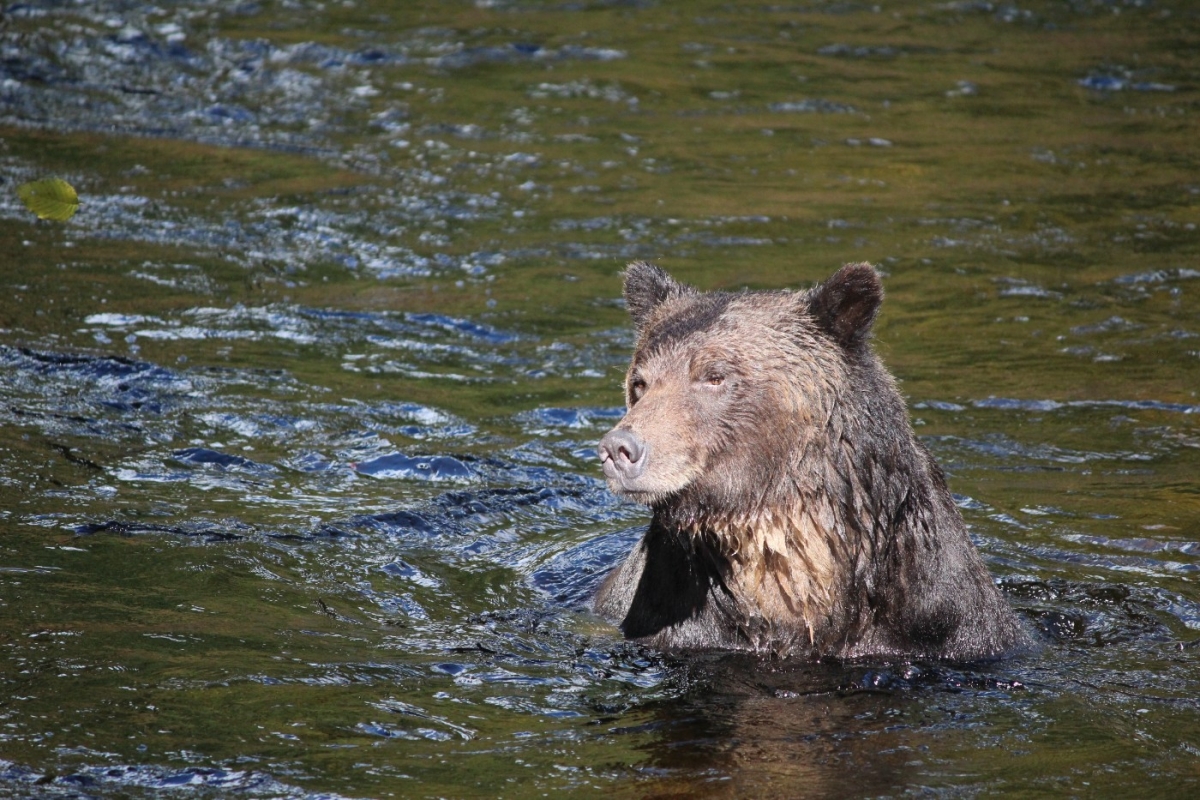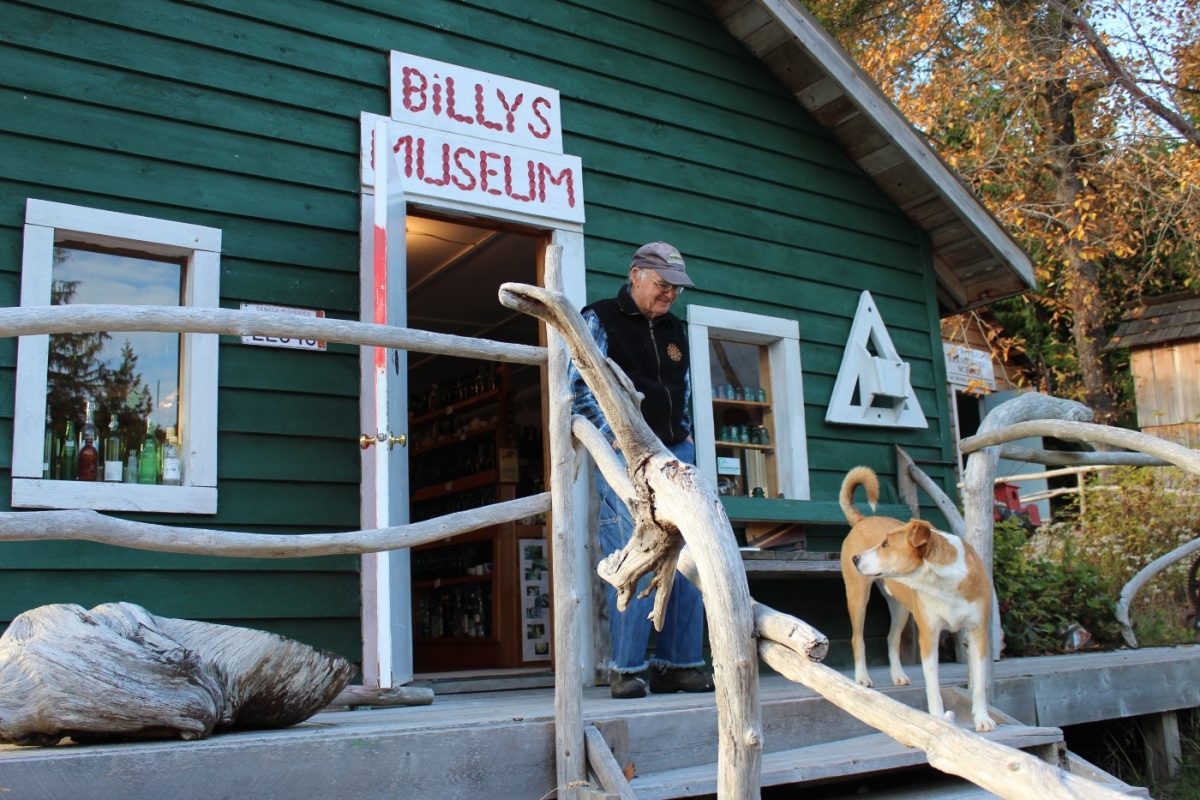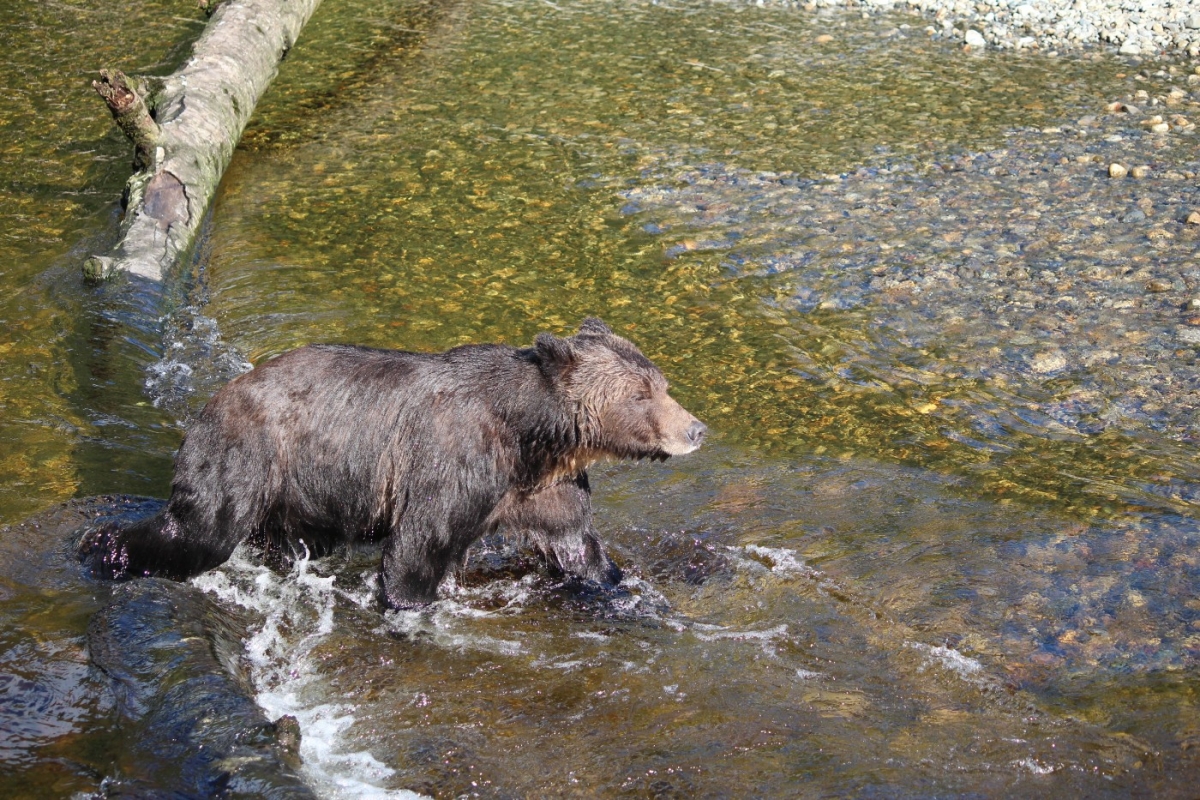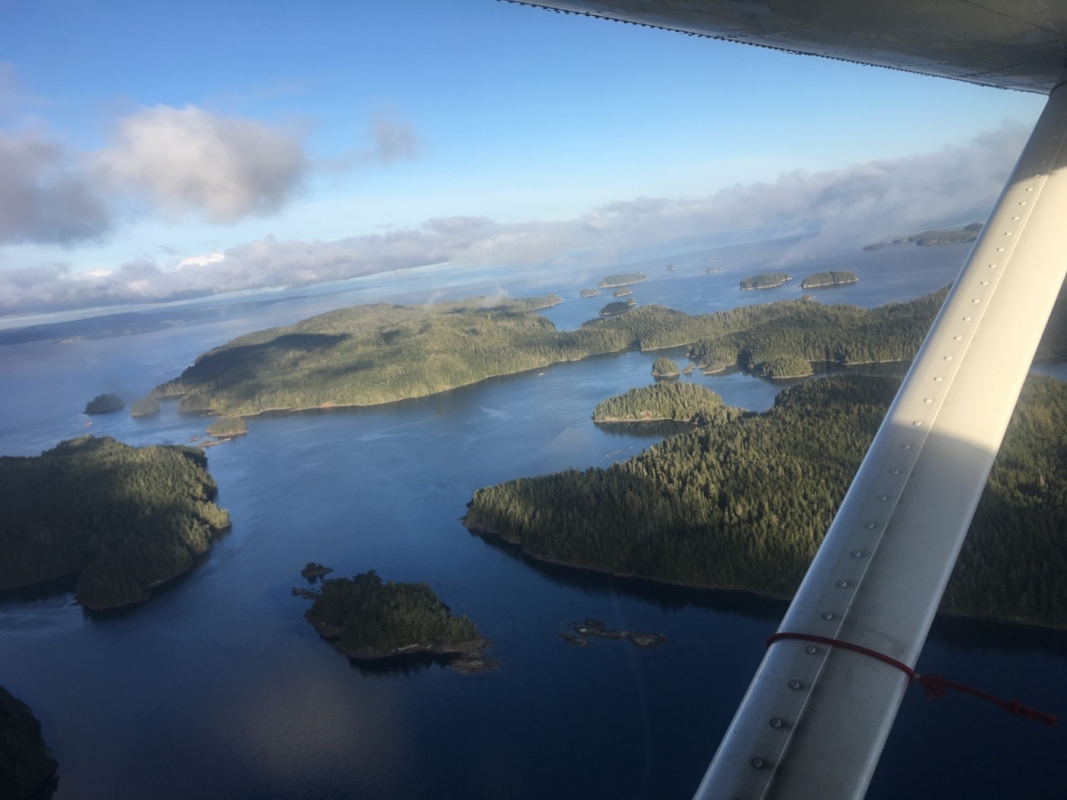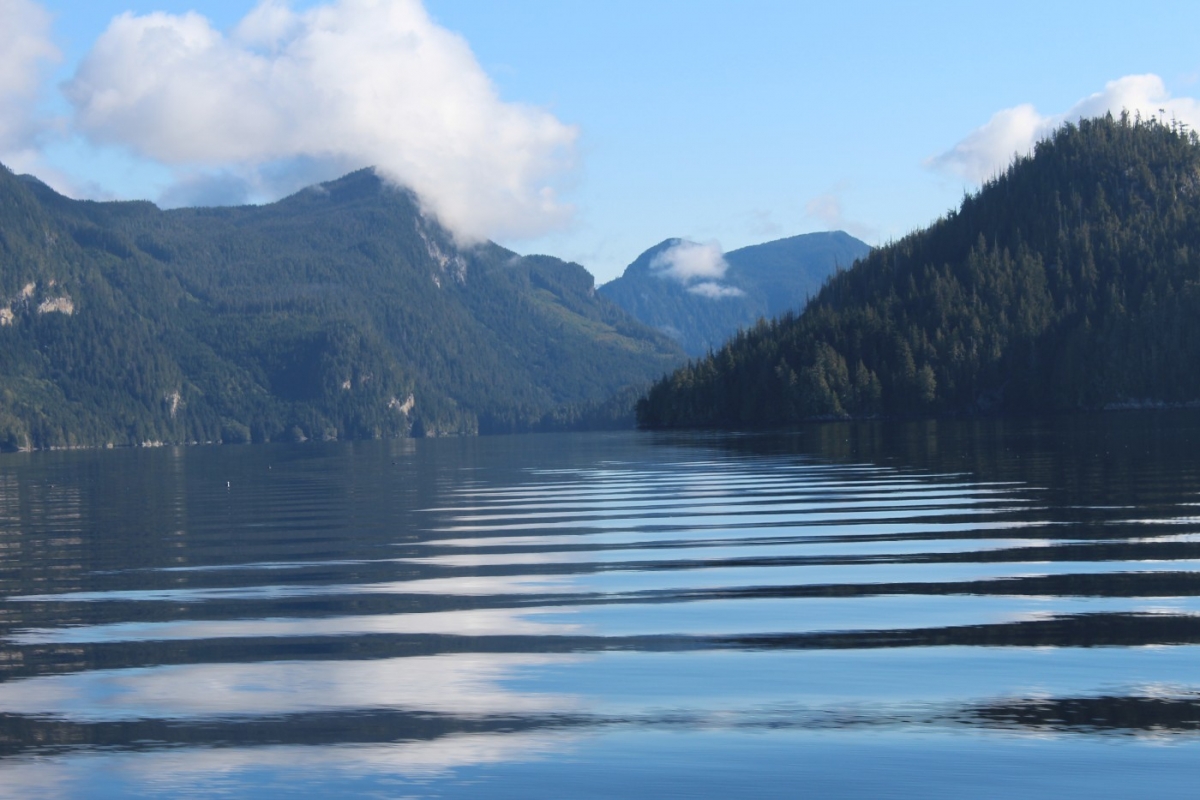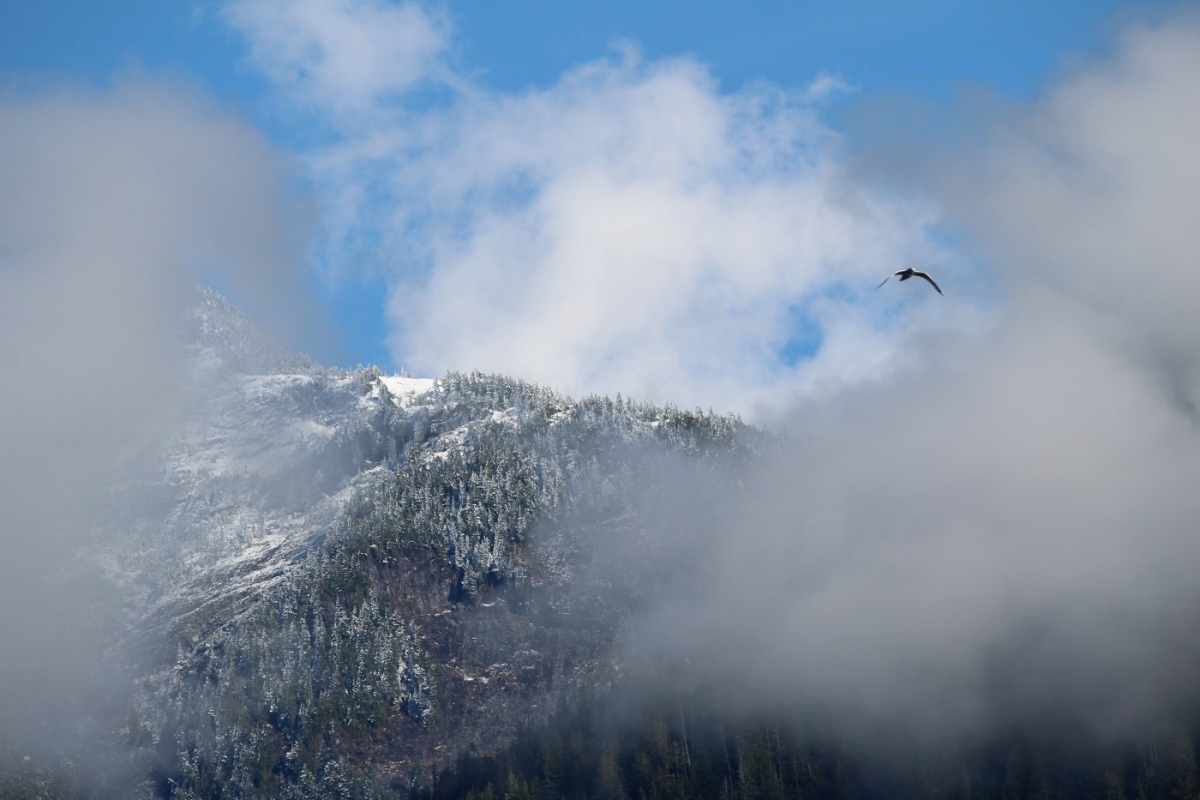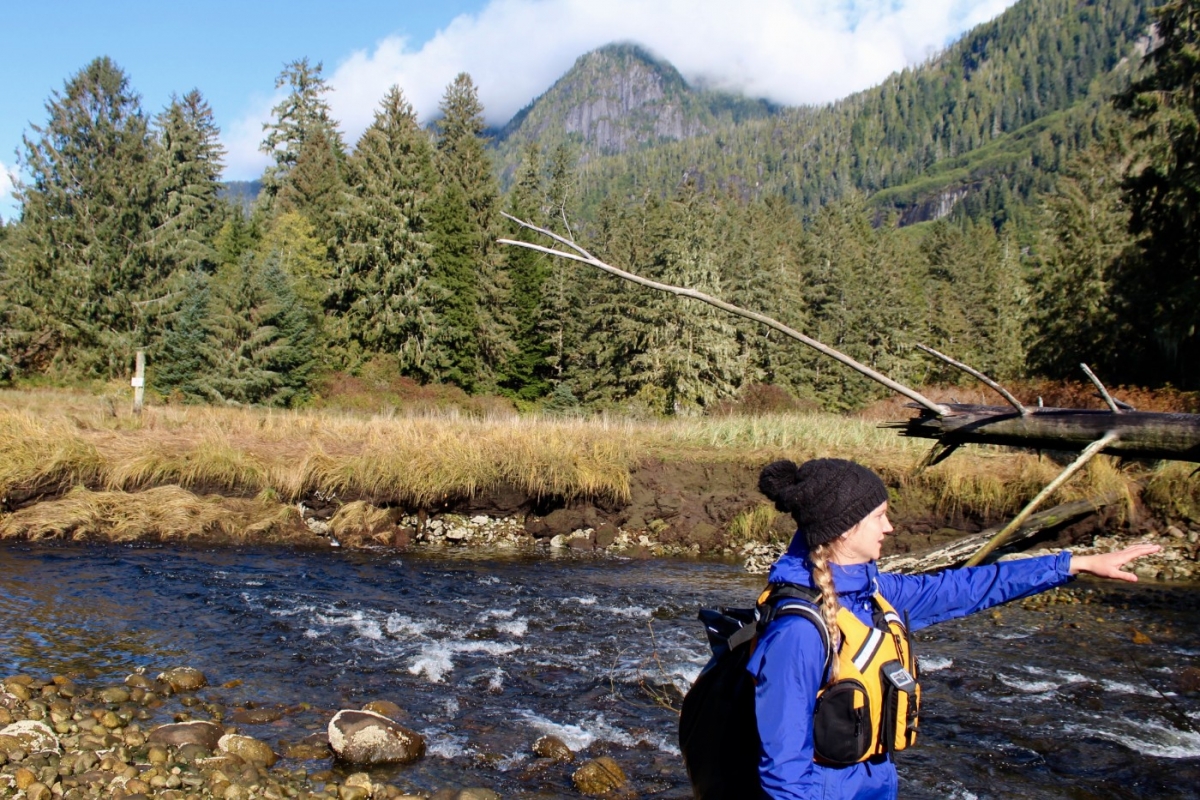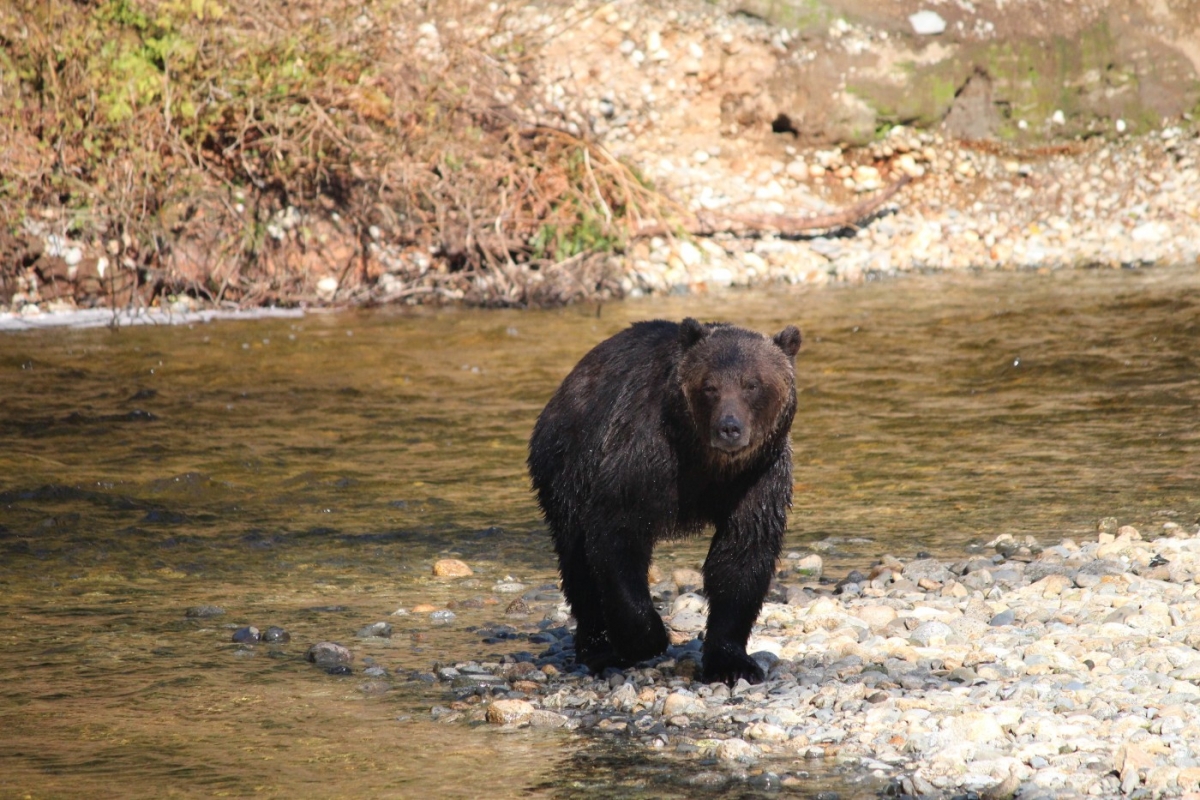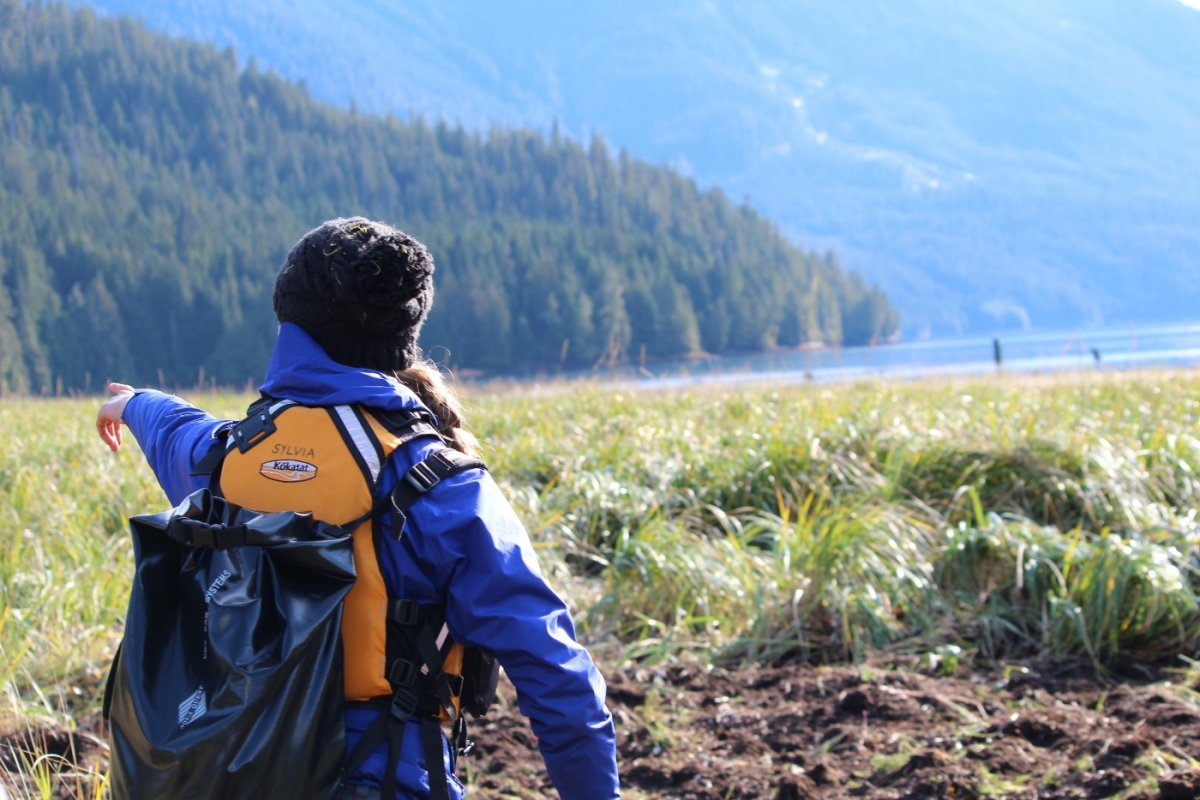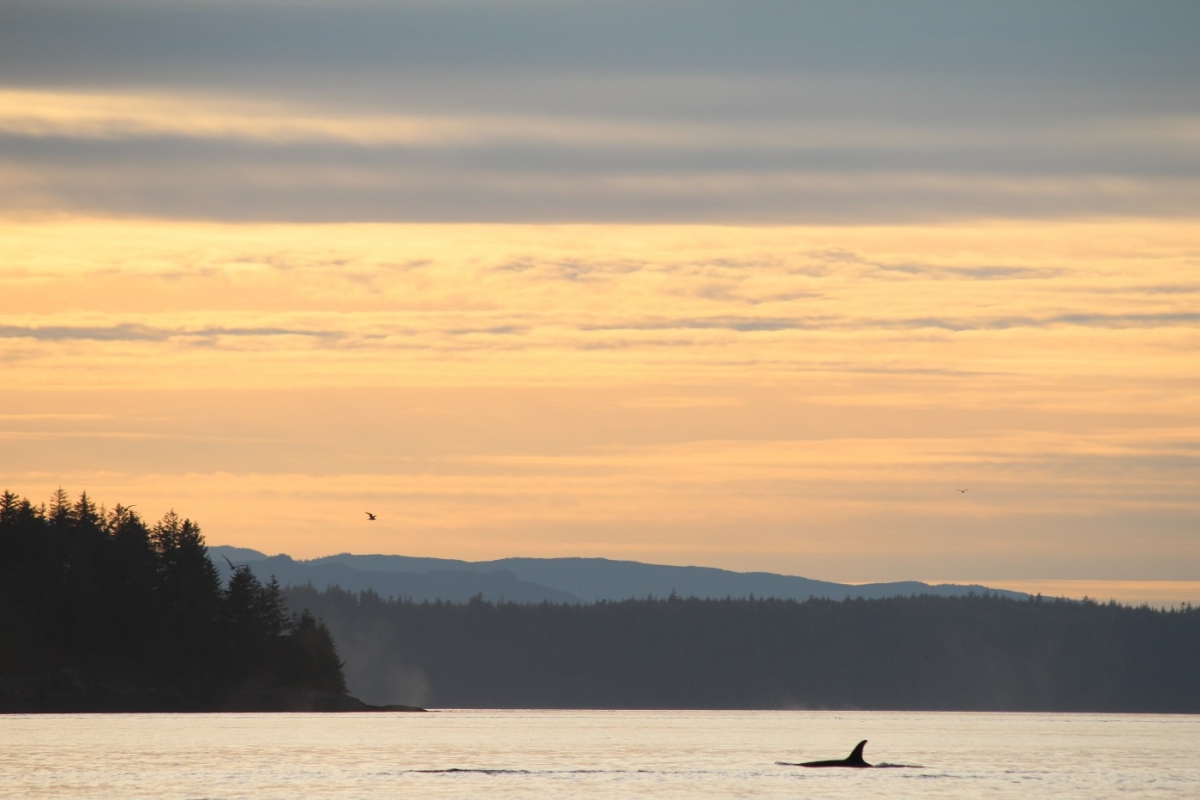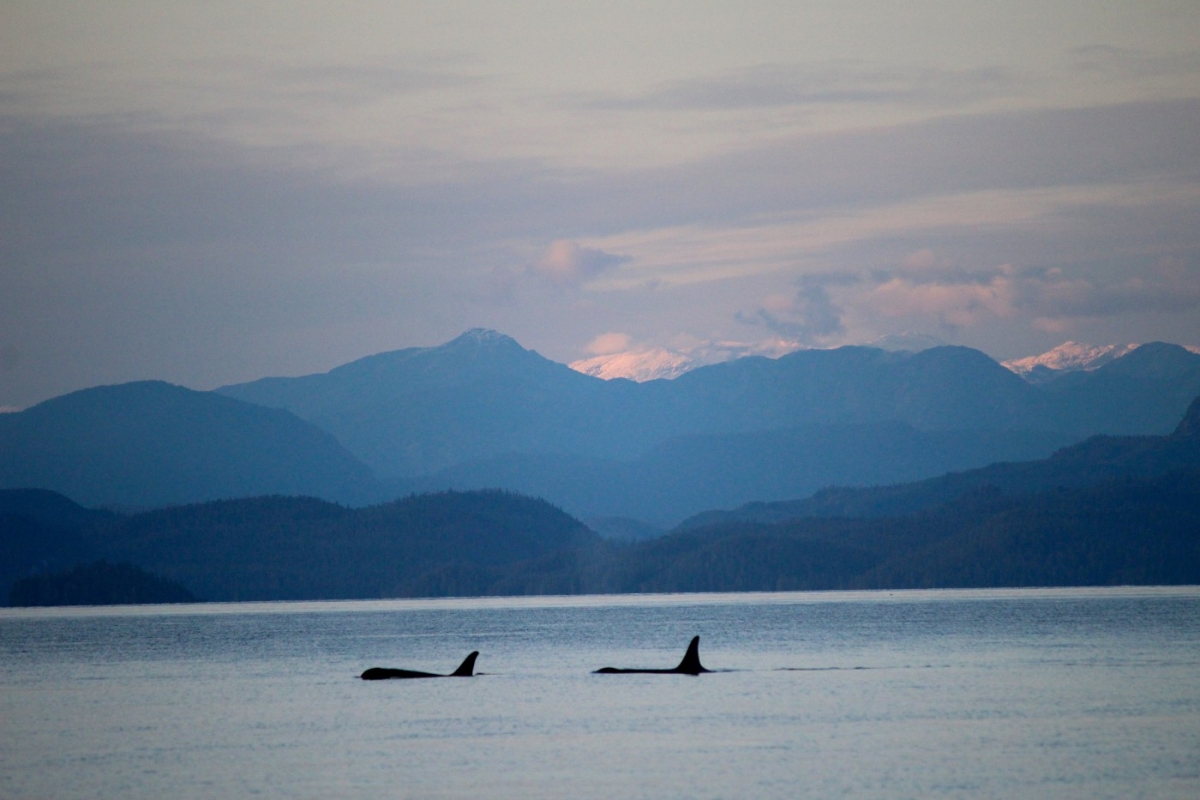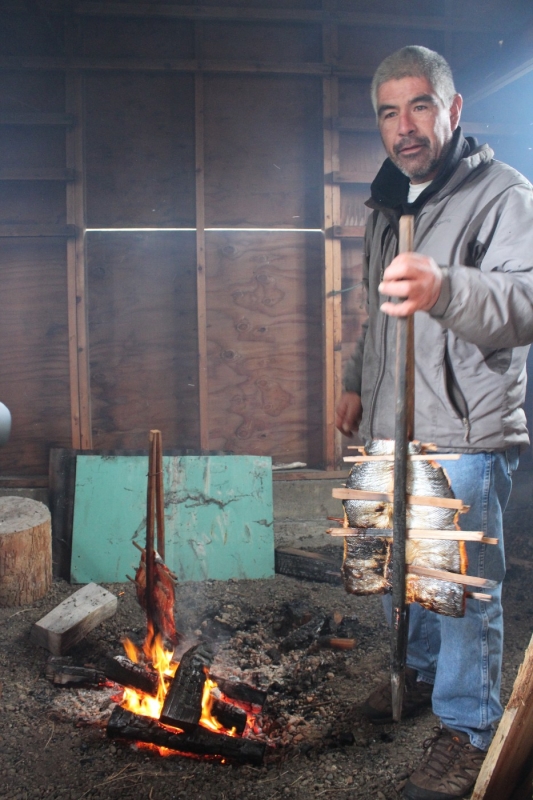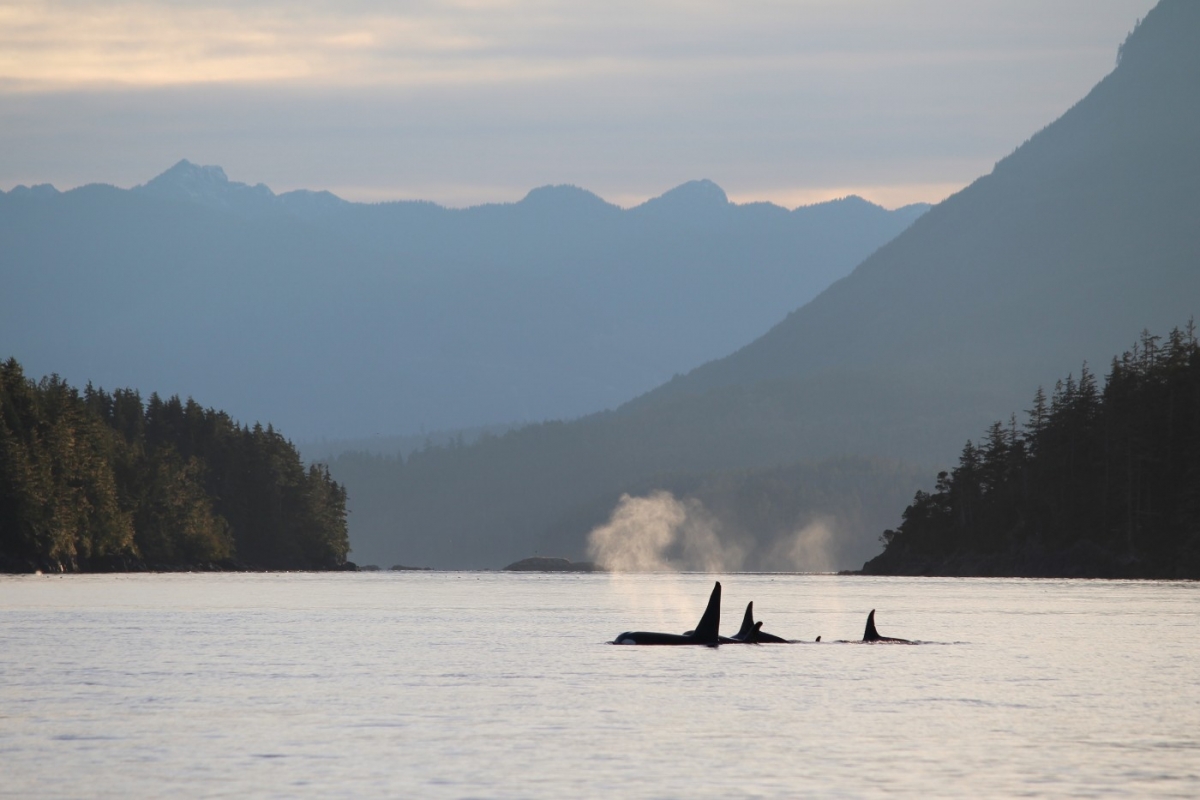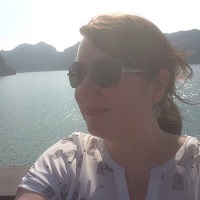∞Originally published in the Vancouver Province November 10, 2017∞
“Where are we, Narnia?”
They’re the first words out of the mouth of a travel companion the moment we climb from our zodiac and step on the shores of a Bond Sound estuary. In front of us all, is a majestic C. S. Lewis landscape: blue cloud-wisped sky, snow-strewn mountain jags, shaggy cedar slopes, rock-studded beaches carved by cold rivers. And, somewhere in there, bears.
We’re here to bathe in the beauty of the Broughton Archipelago, B.C.’s largest marine park, a set of wild islets at the mouth of the Knight Inlet near Vancouver Island’s North Coast. It’s raw, remote and more dreamscape than landscape.
This almost-off-the-grid experience — fly in nature lodges, exploring First Nations cultural heritage, wandering pristine coastal rain forests and coming face to snout with bears — makes the perfect West Coast fall escape. This time of year, near the end of tourist season, the mists arrive, making the archipelago and nearby outposts — Alert Bay, Port Hardy and Port McNeill — appear mystical.
“Did you see it?”
Less than 10 minutes into our trek, we stumble on the day bed of a massiveGrizzly,sendingthehulkinganimalcrashingthroughthe undergrowth. It’s Snaggletooth, a massive male who frequents the area to fish, forage and rest. Our hearts pound. Our guides, Tim McGrady and Sylvia Watkins, are the picture of calm. For them, this is another day at the office, albeit with no dress code. McGrady, a veteran nature guide and owner of Farewell Harbour Lodge on Berry Island — our beautiful base camp — walks the forest floor barefoot. He’s “earthing” he explains, to connect more fully with the natural world, a practice akin to Japanese forest bathing.
I wince for him as we continue our bear-tracking up a rocky riverbed, but that’s the price of rapture in the wild.
Suddenly, he freezes. There’s a bear up ahead, a new one named Galabidu. We creep up a bank with a view of the basin below and wait, cameras poised. And then he lumbers into our view, stage right, stalking the stream for salmon for a good 20-minutes. He has the perfect set: clear skies, warm fall sunshine streaming through cedars, a rushing river crossed with fern-feathered logs.
But when Galabidu comes to investigate us, not 10 feet away, it’s a different game. He doesn’t charge us so much as comes in for a sniff, like a 300-pound shaggy mastiff. As the bear nears, I fully grasp that neither guide is armed with more than a can of bear spray.
And then it hits: that frozen instant when you are staring into the eyes of a wild Grizzly and your breath folds in your throat and you’re paralyzed with fear and awe — that heart-stopping moment is what travel in this region is all about.
There are more than Grizzlies to meet. On our boat ride back to the lodge, we spot black bears foraging and Steller sea lions lounging before we stop at Echo Bay. It’s one of the few inhabited outposts in the archipelago, a family’s old shipbuilding site, now home to Billy Proctor and his dog Buster. Proctor, 83, was raised here and over years scavenged a collection of thousand-year-old arrowheads, loggers’ old liquor bottles, and rusted bear traps that he now displays in Billy’s Museum as de facto curator of the region’s settler history and keeper of local lore.
When we leave, for open water, Dall’s porpoises play in our wake. Then orcas appear blowing breathy clouds and hunting herring balls as seabirds swarm overhead.
A visit with the Northern Resident Orcas is a timeless and mystic experience. Elaine O’Connor
I’d spent almost 15 years in B.C. straining for a sighting of orcas off the bow of ferries and whale-watching boats — these were worth waiting for. Still, the show goes on: humpbacks are sighted blowing in the distance. Bald eagles and great blue herons soar overhead.
Back at the lodge, set half on shore, half afloat, on a private island in the traditional territory of the Kwakwaka’wakw First Nations, we decompress over a three-course meal: drinking wine, sharing experiences, and watching the sun fade outside the picture windows. Talk turns to the end of the grizzly hunt in B.C. With Nov. 30 looming, the province’s wilderness tourism industry is braced for change as hunters make way for a market of eco-tourists, roamers and wildlife seekers. Reflecting on the day, it’s not a hard sell.
In the morning, we leave for Alert Bay on Cormorant Island to meet Sea Wolf Adventures owner Mike Willie, a member of the Musgamakw Dzawada’enuxw First Nation and a hereditary chief. He takes us on a guided tour of the U’mista Cultural Centre, a modern building set on the site of the former St. Michael’s Residential School, overwriting the land with a new narrative. Willie provides an overview of the art, traditions and beliefs of the Kwakwaka’wakw First Nations pointing out artifacts with representations of Orcas — supernatural sea wolves known as Maxinuxw in the Kwak’wala language.
Alert Bay is home to the world’s largest totem pole is shrouded in mist and ravens as we follow Willie to view some of the local totems. Later, we watch locals grill slabs of wild salmon over coals in a smokehouse before digging in. Then back into the island’s forests to see how culturally- modified cedar trees heal themselves after planking. Willie explains he can still find the old trails if you know what to look for — twists and bends in trees the elders leave. Locals have a long-held tradition of heading into Great Bear Rainforest to seek clarity and direction in their lives, Wille explains. There’s even a word for the moment the rain ends and everything becomes clear: “awal.”
From the archipelago to the Island. A short ferry ride from Alert Bay we land in Port McNeill and then on to Port Hardy to overnight at the Kwa’lilas Hotel — an avant-garde Aboriginal boutique hotel located in the traditional territories of the Kwakiutl people. It’s decorated with art from Gwa’sala Nakwaxda’xw artists. The hotel partners with cultural tour providers like K’awat’si Tours to offer activities and outings: there’s a cedar weaving class where visitors can make cedar strip bracelets or
take outings to artist Calvin Hunt’s studio. The hotel’s Ha’me restaurant offers game sausage, candied salmon, bannock crisps, roasted elk loin and wild-caught sockeye. We end the day with crisp craft beers in the Nax’id Pub only to start early the next with Spirit Bear coffee, a First Nations-owned roastery (Slogan: Awaken Your Spirit… Naturally!) which we sip on our way to meet Anna Burgess and Chris Lindsay, a young couple behind Cove Adventure Tours.
The pair are recent transplants who launched their guiding outfit with a few friends this past spring, drawn by the laid-back lifestyle, stunning scenery, and spotty internet connectivity, preferring the natural to the digital world. We visit one of their favourite haunts: Ronning’s Garden — a five-acre forest estate-slash-secret garden lush with Irish yews, Scarlet hawthornes and monkey puzzle trees.
Bernt Ronning settled here in 1910 and stayed for 50 years, working as a fisher, trapper and camp cook, and slowly expanding his Eden, clearing rainforest and ordering exotic seedlings from around the world. The forest slowly reclaimed his work until locals unearthed it for weekend walks and tourists.
From there, we head into the wild one last time, to San Josef Bay at the southern edge of Cape Scott Provincial Park within Tlalasikwala Traditional Territory. A half-hour hike through more forest opens to a panoramic beach, the rain driving sideways off the surf. We take shelter in caves sipping hot chocolate and staring at rock stack formations as Chris and Anna try to light a bonfire on the beach. Even in middle of a storm, they succeed by some sleight-of-hand in getting a few flames to lick the cedar, just enough, once again, to make magic from the land.
On the way back, I miss a turn, lose the pack, and wander alone in the rain, seeking my own “awal” before making contact again.
Elaine O’Connor traveled as a guest of Destination BC. Read more of her travel tales at elaineoconnor.ca and follow her on Twitter @elaine_oconnor.
IF YOU GO:
- Harbour Air Seaplanes: Scheduled service and chartered flights into Berry Island and beyond
- Pacific Coastal Airlines: Flights from Vancouver to Port Hardy and a dozen other B.C. towns
- Farewell Harbour Lodge, Berry Island: Bear-tracking adventures, whale watching, fishing excursions, sea kayaking and more
- Sea Wolf Adventures: Grizzly viewings, First Nations cultural tours and whale watching
- U’mista Cultural Centre, Alert Bay: Museum, art gallery, group tours and gift shop
- Kwa’lilas Hotel, Port Hardy: First Nations Destination Hotel
- Cove Adventure Tours: Book a nature tour to San Josef Bay, Winter Harbour, Topknot Beach and other sights

I’m a different kind of travel writer. I craft long-form, cover-worthy feature-length travel articles with style and substance. I tell travellers not just what to do, but why. Find out how to work with me.
